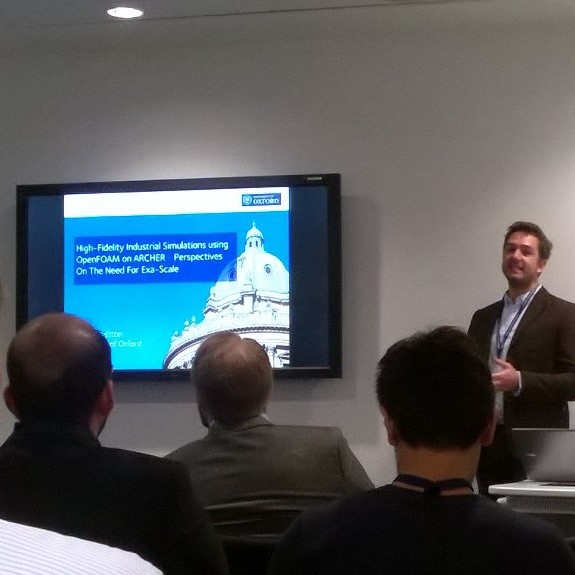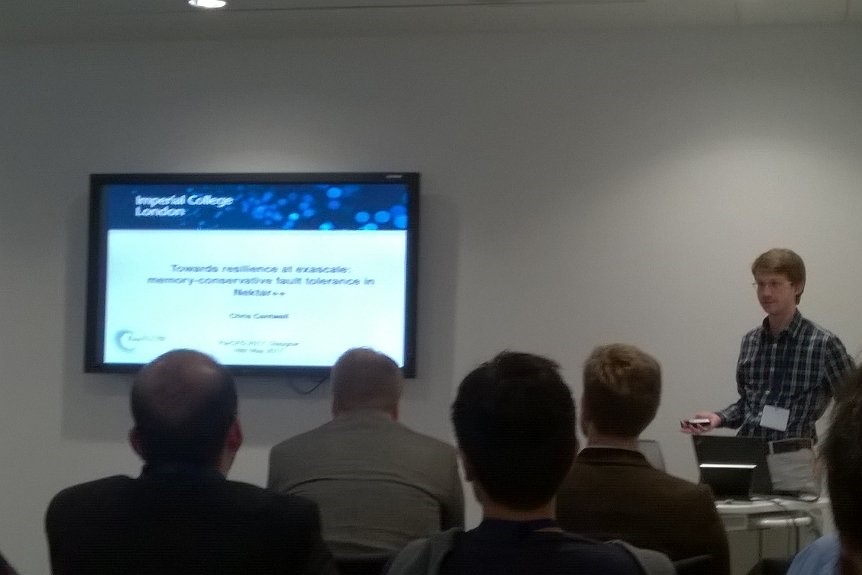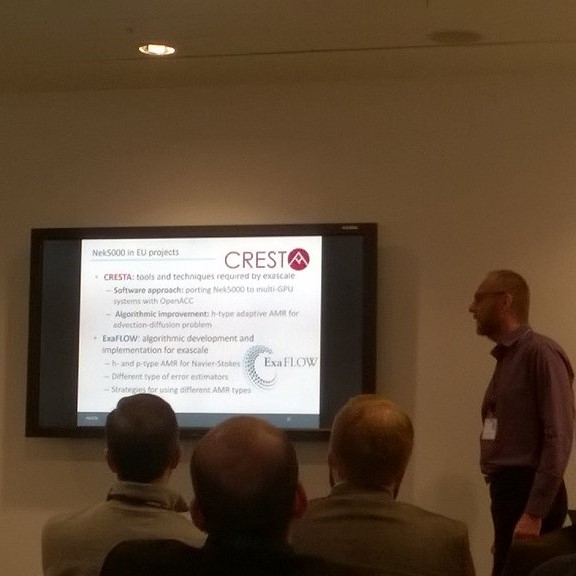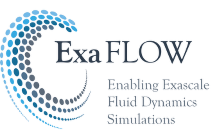Authors: Dr. Christian Jacobs, University of Southampton; Niclas Jansson, KTH Royal Institute of Technology
ParCFD mini-symposium: Towards Exascale in High-Order Computational Fluid Dynamics
- "High-Fidelity Road Car & Full-Aircraft Simulations using OpenFOAM on ARCHER - Perspectives On The Need For Exa-Scale" - N. Ashton
- "Incorporating complex physics in the Nek5000 code: reactive and multiphase flows" - A. Tomboulides
- "Towards Resilience at Exascale: Memoryconservative fault tolerance in Nektar++" - C. Cantwell
- "Future-proofing CFD codes against uncertain HPC architectures: experiences with OpenSBLI" - N.D. Sandham
- "Towards adaptive mesh refinement for the spectral element solver Nek5000" - A. Peplinksi
Several members of the ExaFLOW consortium attended the international Parallel Computational Fluid Dynamics (ParCFD) conference in Glasgow, UK. The five talks gave an update regarding the novel impact that the various computational challenges that ExaFLOW addresses, namely the use of fault tolerance techniques to help simulations recover from hardware failures in exascale systems; the use of adaptive mesh refinement (AMR) techniques to reduce computational cost; and the use of code generation and domain-specific language (DSL) for future-proofing CFD codes against uncertain HPC architectures.


There were also insightful talks from renowned researchers including Dr Neil Ashton on industrial OpenFOAM simulations and the need for exascale, and Prof. Ananias Tomboulides on high order reactive simulations using Nek5000.

All talks were well-received and generated a significant amount of interest from the audience. This helped to foster collaboration opportunities both internally and externally to the project. We look forward to the next ParCFD conference taking place in the USA next year.



